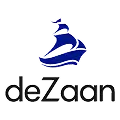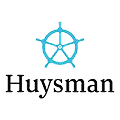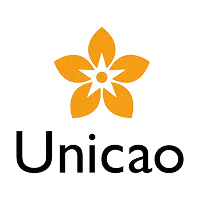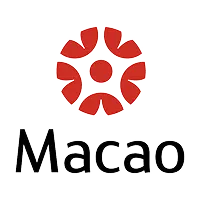On this year’s International Day of Cooperatives, Mallikarjuna Kumaraswamy, Vice President for OIam’s cashew business explains 3 ways the cooperative model is helping reimagine sustainable cashew supply chains
We source much of our cashew from 100 partner co-ops across rural Africa and Asia, representing over 50,000 smallholder farmers who rely on it as a source of income and food security. They afford the farmers access to information, inputs, credit and markets, allowing them to produce more and better quality through the power of the collective. For partners like Olam in the nut sector, they offer a resilient and sustainable sourcing model for our various cashew nuts and butters to satisfy the growing trend in conscious and healthy snacking.
Leaving no one behind
For all our boots on the ground, Olam’s 109 agronomists and extension workers can’t reach the millions of cashew smallholders in rural communities. In Africa, they sell their raw cashew to a complex network of local traders, resulting in individual farmers receiving low prices and very little investment. But the communication channels and collaboration between members that exist under a well-managed co-op, allow access to training, inputs, markets and a collective voice. And the support provided by our teams on the ground can be more ambitious due to the benefit of only having to deal with a single counterpart in terms of payment, legal processes and support infrastructure.
This has proved particularly valuable over the last few months amid the COVID pandemic, in terms of distributing large consignments of PPE, sanitation and medical supplies, and sensitisation campaigns throughout farming communities.
That said, there is often a degree of ‘professionalising’ coops required to unlock this value and in other cases, a local buying structure has to be set up from scratch to enable direct sourcing. In Côte d’Ivoire, where we partnered with IDH (the Dutch Sustainable Trade Initiative) and Fair Match to establish a traceable cashew supply chain, it took a degree of convincing farmers to cut long-established ties with the middle-men and join farmer organisations to sell directly to us. But enthusiasm grew as farmers saw Olam’s local processing operations in Bouaké and constant presence of field staff, even outside of procurement season, as a sign we could be a reliable and trusted partner. Today, the partnership works to assess cooperatives’ leadership skills and give targeted training and coaching.
Empowering farmers to produce more and better
Co-ops serve as a hub for us to invest in training and resources – finance, seeds and other inputs - equipping farmers with the knowledge and tools they need to increase yields and income. For many small-scale cashew farmers, learning about proper pruning, organic composting, post-harvest processing and storage, will be the first kind of formal education they’ve had access to. Through a train-the-trainer model and year-round support, farmers are able to raise their yields, quality and ultimately their income. They become role-models or agents in the community, leading other farmers by example.
Take the often dreaded practice of pruning. Understandably, without prior knowledge of the added ‘flower power’ that correct pruning can bring, a cash-crop farmer will look at every branch or bud as money literally growing on their trees. Which is why Olam relies on model farms as community demonstration plots, to provide the proof that’s needed to convince more farmers to put their training into practice and start pruning.
Training also extends to additional revenue-generating activities to support cashew farmers through the off-season. In cooperatives in the Bono East and Savanna regions of Ghana for example, we’ve introduced beekeeping in partnership with German development agency GIZ. Farmers are trained and provided with hives and harvesting equipment, allowing them to earn an additional income from the sale of their honey.
Building thriving cashew communities
Cooperatives can act as a powerful vehicle for driving equality, innovation and behaviour change in rural communities. They facilitate important conversations, for instance around inclusion of women and child labour and we help them train members on acceptable labour practices and develop gender action plans. As legal entities, they conduct internal monitoring that shows us whether members are implementing training and complying with the Olam Supplier Code, but equally helps us identify where greater support is needed.
This listening mechanism that co-ops provide give us a better understanding of community needs and where to direct investment – from literacy programmes and finance training, to infrastructure projects to provide access to safe water, health clinics and schools. So in Côte d’Ivoire, we partnered with the local cashew cooperative in Korodougou to build the village’s first primary school that’s now attended by 180 children. Meanwhile in the cashew community of la Grai in Vietnam, Olam has installed 3km of street lighting under the guidance of the District Commune Authority – a member of the la Grai coop. Since the installation last year, members have reported a reduction in the accident rates, making the streets a safer place for the ~800 resident families.
Our ongoing ability to feed the growing demand for cashew with the rise of plant-based living, is rooted in these farming communities and why our commitment to them is part of our corporate purpose to reimagine global agriculture. Consumers have been showing more interest in where their food comes from for a while now, but the spread of COVID has brought a greater sense of wanting to change the world for the better – we have a responsibility to ensure the back-story behind a packet of nuts or a protein bar, is a good one.
To do this, we need to trace the nuts back to the source. And this is where Olam’s AtSource platform comes in; connecting customers - via multiple economic, social and environmental metrics - to the work cooperatives and their partners are doing to build a more sustainable cashew supply chain. AtSource offers a truly unique view of the entire journey of cashew: full traceability from farmer groups, full socio-economic information related to farmers; full environmental footprint from farm to factory gate; full view of our different initiatives to help create thriving rural communities; and the opportunity to join Olam in our bid for greater impact.
Sign up to be the first to hear about ofi news.







